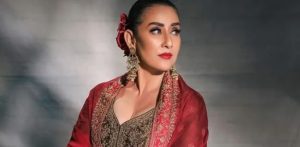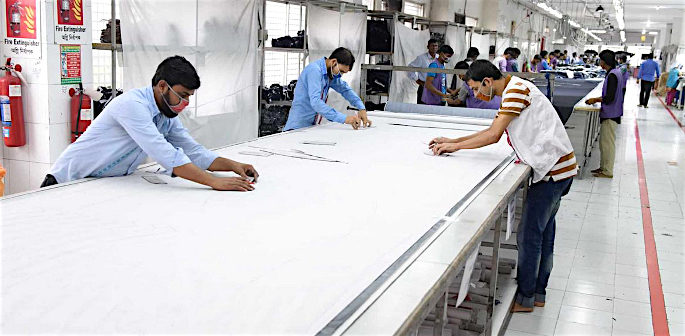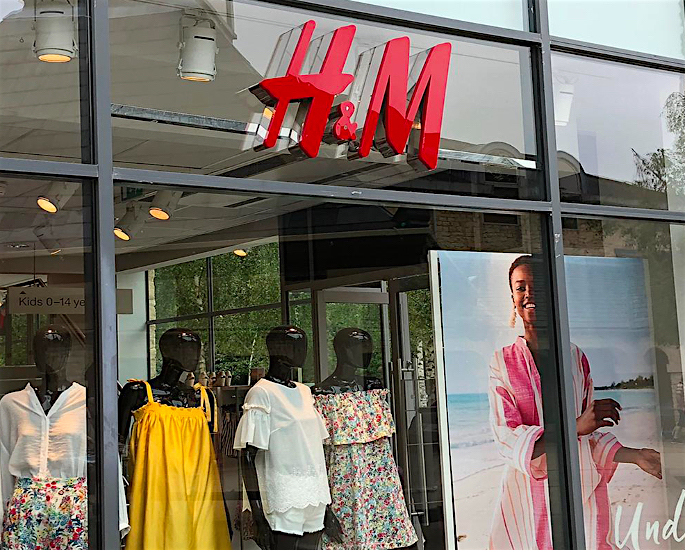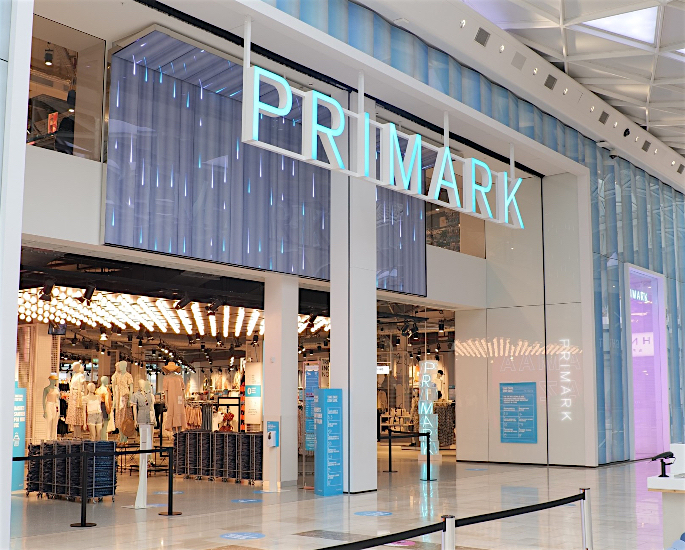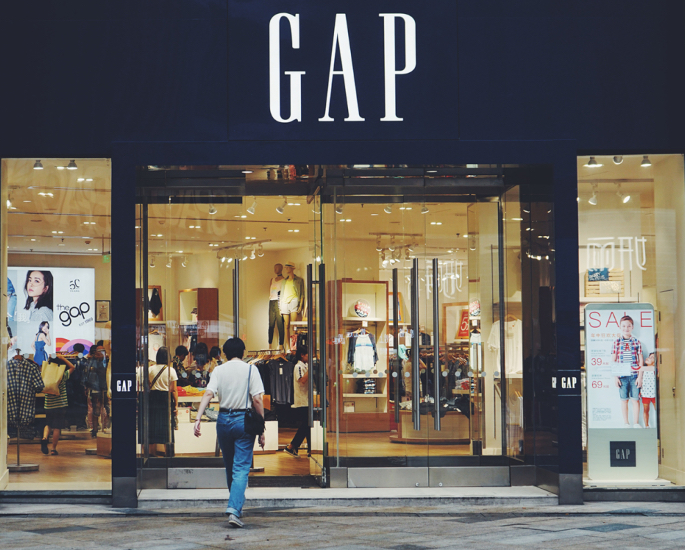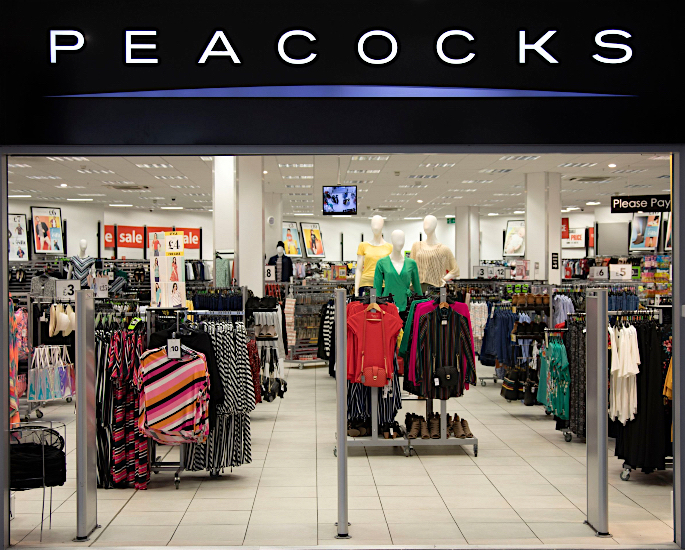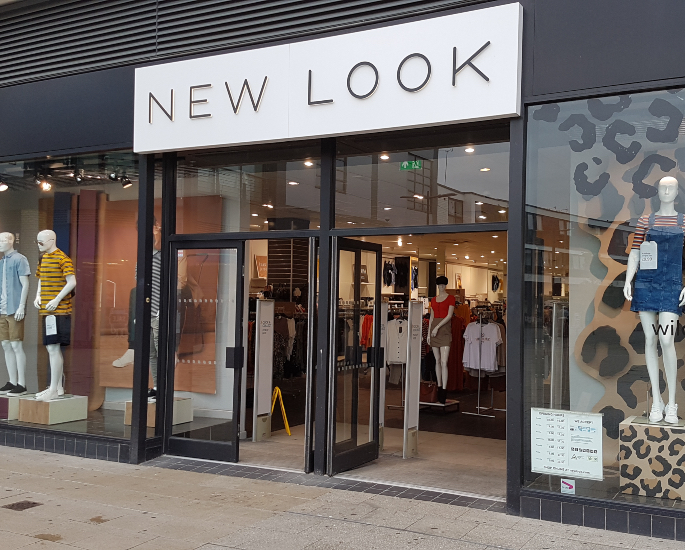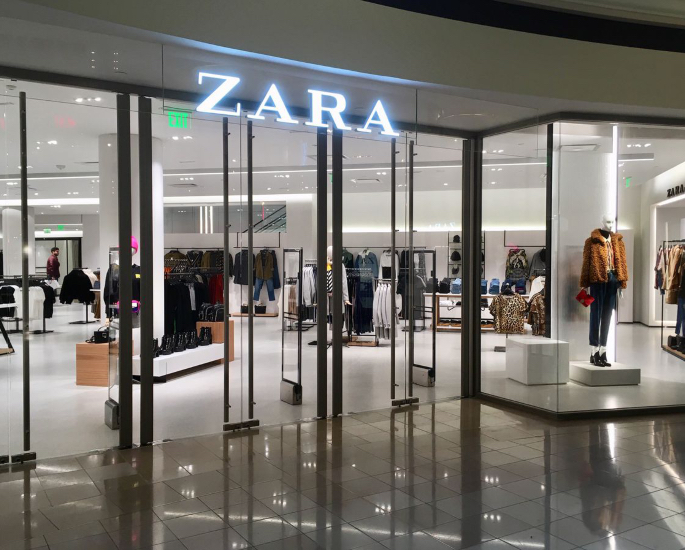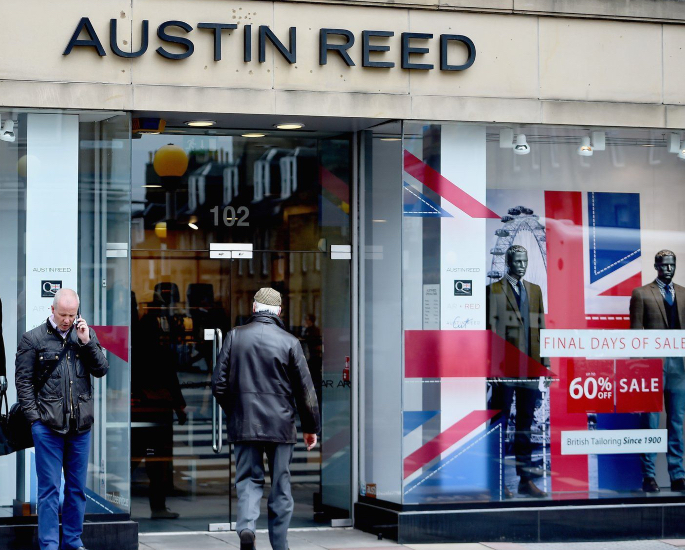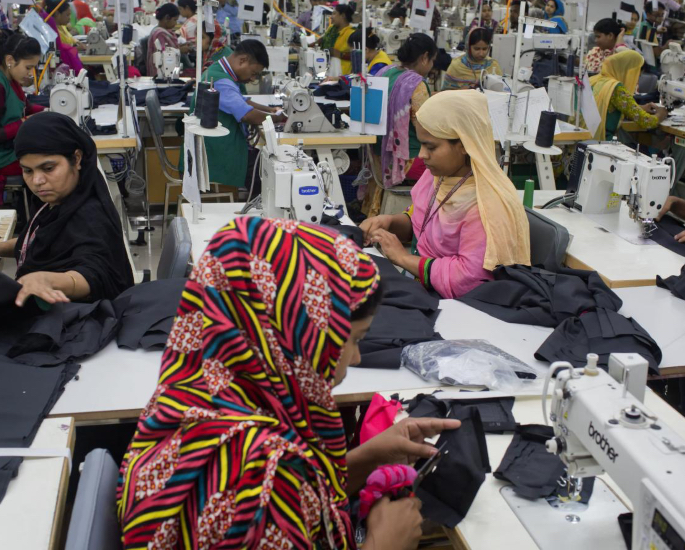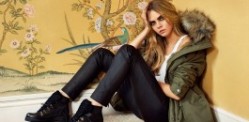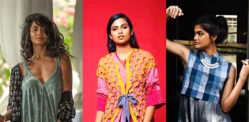38 of these factories are in Bangladesh alone.
The fashion industry of Bangladesh is home to several renowned fashion brands and is the world’s second-largest garment exporter after China.
However, it is not the quality of manufacturing that attracts retail companies to the country, rather it is the low manufacturing costs.
With this, comes extremely low wages and hazardous working conditions for employees.
Not only that, but workers have lost their lives due to poor working conditions which have led to factories collapsing.
Those who have not died in the factory have been killed during strikes calling for safe working conditions and fair wages.
In fact, garments produced in Bangladesh account for approximately “$20 billion (£15,333,308.00) in exports” with “59%” exported to the European Union, “26%” to the US and “5%” to Canada, according to Business Insider.
However, due to the impact of Covid-19 on the textiles industry in Bangladesh, numerous fashion brands owe factories millions of pounds.
In May 2020, the Bangladesh Garment Manufacturers and Exporters Association (BGMEA) and the Bangladesh Knitwear Manufacturers and Exporters Association (BKMEA) issued a letter stating:
“It has unfortunately come to our attention that certain buyers are taking undue advantage of the Covid-19 situation and demanding unreasonable discounts.
“Despite pre-Covid-19 contracts and continued business activity, which is not only impossible to grant out members, but also in violation of local laws and international acceptable standard.”
We explore which fashion brands’ products are made in Bangladesh.
H&M
Swedish fashion brand Hennes & Mauritz AB, popularly known as H&M, source the highest quantity of merchandise from Bangladesh.
Founded in 1947, H&M is a multi-national clothing brand which is renowned for its fast-fashion for women, men, teenagers and children alike.
Not only that, but the brand also sells homeware offering a large selection of interior design and decorations under the label – H&M HOME.
The fashion giant was reportedly accused of its worker safety failures in Bangladesh in 2013.
In the wake of the Rana Plaza building collapse which took the lives of over 1,100 workers, H&M was criticised for its negligence to safety.
Undoubtedly, this was one of the deadliest disasters in the fashion industry. However, this is something H&M strongly denied.
According to Business Insider, senior policy advisor for the International Labour Rights Forum, Bjorn Claeson said:
“[Brands] have codes of conduct for suppliers they audit, which includes basic safety standards.
“The problem is that brands are not willing to make anything else but voluntary, non-binding commitments to worker rights and health and safety standards.
“They are under no obligation to fix the problems, to make the factories safe or to tell workers of the dangers they face.”
It appears this concept was previously adopted by H&M who reportedly did not work to ensure safety for its workers in factories in Bangladesh.
Despite H&M’s somewhat rocky relationship with Bangladesh, in April 2020, the fashion giant was in talks to support garment workers in the country as lockdown deterred their livelihoods.
Interacting with Thomson Reuters Foundation, H&M revealed:
“We are well aware that the suppliers, and their employees, are extremely vulnerable in this situation.
“We are at this instance intensively investigating how we can support countries, societies and individuals from a health and financial perspective.”
It was reported that the ready-to-wear giant, H&M has continued to pay its workers in Bangladesh throughout the coronavirus pandemic.
This initiative was carried out to ensure garment workers are not gravely affected during unprecedented times.
Primark
Founded in Ireland in 1969, Primark is one of the most popular fashion brands with over 370 stores in 12 countries.
The fashion retailer offers a vast range of products. These include:
- Womenswear
- Menswear
- Accessories
- Footwear
- Beauty products
- Homeware
- Confectionery
Contributing to fast-fashion, Primark is known for providing the latest fashion trends at low prices.
This concept has allowed them to excel in the hearts and wallets of its customers.
However, where are these products made?
According to the Primark website, they are regularly asked where their products are made.
To answer this query, Primark shared a virtual tour of a factory in Bangladesh. They said:
“Like many other fashion retailers, our products are made around the world in countries such as Bangladesh, India and China.
“Primark doesn’t own any factories, so all our products are made by our approved suppliers who manufacture on our behalf.
“In 2016, we used virtual reality equipment to film a Primark pair of trousers being made in a factory just outside of Dhaka, Bangladesh.”
The video shows the conditions and work ethic inside the factory from cutting to sewing to labelling a pair of trousers.
Gap Inc.
American apparel franchise Gap Inc., commonly known as Gap was founded by Donald Fisher and Doris F. Fisher in 1969.
Since then, the fashion brand has extended its appeal across the globe. Gap sells a range of products including women’s and men’s apparel, children and babywear and maternity clothes.
Although Gap produces many of its products in Bangladesh, the fashion giant is not well-received in the nation.
This is because of its half-fulfiled promises made to factories in Bangladesh in terms of working conditions and safety measures.
In fact, according to Waron Want, Gap was awarded the ‘Public Eye’ Award for the worst company of the year (2014).
This came after the fashion brand failed to agree to sign an agreement to help ensure the safety of workers in factories after the Rana Plaza disaster.
The jury of the award explained their decision saying Gap, “steadfastly refuses to contribute to effective reforms in the textile industry.”
Not only that, but Kalpona Akter, Bangladeshi labour activist and Executive Director of the Bangladesh Centre for Workers Solidarity said:
“Gap still refuses to make a contractual commitment to work with their suppliers and local and international trade unions to ensure that repairs are made and workers have the right to refuse dangerous work.”
To make matters worse, in March 2020, it was revealed that several retailers including Gap cancelled orders worth billions of pounds according to Forbes.
This action came as a result of the apparel industry struggling during the coronavirus pandemic and the lockdown.
This gravely affects factories in Bangladesh which were being denied payment for completed goods.
Fashion brands like Gap also demanded discounts despite pre-lockdown contracts.
“Some, like Gap Inc., a major buyer in Bangladesh that, in April (2020), cancelled orders through the fall, is now asking for 10% discounts on shipping goods”, said a Forbes report.
Although Gap is one of Bangladesh’s biggest customers, it appears the fashion retailer fails to comply with expected standards of safety.
Peacocks
Fashion company, Peacocks is part of the parent organisation Edinburgh Woollen Mill (EWM) and was founded in 1884 by Albert Frank Peacock.
Initially, it began as a “true Victorian Penny Bazaar selling anything and everything.”
In 1940, it was moved to Cardiff by Albert’s son, Harold. The fast-fashion brand holds stores in approximately 400 locations.
According to the website, the growth of Peacocks is explained saying:
“During the following years (1940 onwards) Peacocks continued to establish itself as a value-for-money retailer.
“From the mid-1990s onward Peacocks experienced significant development and growth and a greater emphasis on fashion, which helped to propel the brand to even greater success in today’s market.”
Peacocks is also in partnership with several charities. These include Make A Wish, Cancer Research UK Partnership, WEEE, Newlife Charity to name a few.
Like many other fashion brands, Peacocks has many of its merchandise manufactured in Bangladesh.
However, it appears strain from Covid-19 has turned relationships sour between both parties.
According to BGMEA’s letter, Peacocks was on the association’s blacklist due to its price negotiations with contractors.
It was claimed EWM was asking for discounts on previously fixed contracts. This claim is strongly denied by EWM.
Speaking to Retail Gazette, a spokesperson for EWM said:
“We only received the letter from the BGMEA today (24 May 2020), and we are disappointed it has been shared more widely before we have had the chance to respond, consider the proposals and work together to find a solution.
“When this global crisis hit, we had already paid for the majority of future stock, and we have since had productive discussions with individual suppliers about remaining stock.”
The spokesperson continued to state that EWM had “the best of intentions, even when the circumstances are difficult.”
However, the BGMEA stated that EWM cancelled orders approximately “worth $8.22 million (£6.76 million) across five factories.”
Supporting this statement, a report by Express & Star also claimed that Peacocks’ owner, EWM had confirmed that the company had cancelled some orders.
Yet, the fashion brand did not confirm how many orders were cancelled.
The retailer sells menswear, womenswear, children’s clothing and promises great value.
New Look
Popular fashion brand, New Look is well-known for its trendy items of clothing, accessories and footwear aimed at women, men and teenagers.
This British fashion retailer was established in 1969 by Tom Singh. It has since been taken over by Brait SA, in May 2015.
Starting as a single fashion store in the UK, New Look has quickly become one of the leading fast-fashion brands across the UK.
In March 2019, New Look had 519 stores in the UK and Ireland.
As well as offering shoppers an in-store shopping experience, New Look also ships to approximately 66 countries worldwide.
In fact, according to the New Look website, its transactional website generates “around 20% of sales.”
The fashion brand’s popularity is evident through its “5 million followers on social media, across Facebook, Instagram and Twitter.”
Sourcing products through 572 factories across 23 countries, New Look has a worldwide reach.
The brand has factories in the Far East, Indian Subcontinent, Middle East and Africa. 38 of these factories are in Bangladesh alone.
However, during the coronavirus lockdown, “New Look said it had cancelled 20% of orders from Bangladesh, holding on to £6.8 million” according to Express & Star.
Despite this, the fashion brand informed ITV News that it has restored some orders with Bangladesh.
A spokesperson for New Look explained:
“We regrettably had to inform suppliers we could not place new orders and would be temporarily postponing outstanding payments.
“We only did so out of absolute necessity. We have started making some supplier payments where we are able to do so.”
Zara
Spanish multi-national clothing retailing company, Zara is the main brand of the Inditex group.
Founded in 1974 by Amancio Ortega, Zara is also one of the world’s largest fashion brand retailers.
Established for accommodating to the latest trends in clothing for women, men, children, shoes, accessories, beauty and perfumes, Zara promises fast-fashion.
The Spanish chain has around 2,200 stores across the globe and generates $17.2 billion (£13,186,644,880.00) in annual revenue.
Known as one of the giants in fashion brands, Zara has been in the media for various controversies.
In particular, Zara came under fire for exploiting its garment workers as well as failing to meet standard factory working conditions.
Shoppers in Istanbul, Turkey found handwritten notes by garment workers who claimed that they were being mistreated. One note read:
“I made this item you are going to buy, but I didn’t get paid for it.”
Zara’s lack of concern for its factory workers is certainly alarming. In fact, in 2018, Zara could have lost its right to source from Bangladesh.
This is because the fashion giant failed to improve working conditions despite having signed the Accord on Fire and Building Safety.
According to Reuters, Joris Oldenziel, Accord’s deputy director said:
“The premature shut down of the Accord, leaving workers in unsafe circumstances, would jeopardise the brand’s ability to source from a safe industry.”
This would have led Zara to face new sourcing issues.
In total, Zara sources from twelve countries. These include:
- Spain
- Portugal
- Morocco
- Bangladesh
- Turkey
- India
- Cambodia
- China
- Pakistan
- Vietnam
- Argentina
- Brazil
However, unlike many fashion brands, Zara is listed amongst the companies which will pay for production during the lockdown.
Austin Reed
British-owned fashion brand, Austin Reed specialises in men’s clothing from formal to casual wear.
Founded in 1990, Austin Reed became a part of EWM in 2016. The fashion brand has stated its name, Austin Reed is “a byword for quality and style.”
Expressing its passion for service and design, the Austin Reed website states:
“Our team of experts all share in the same Austin Reed DNA – a true passion to serve.
“For over 100 years, we’ve prided ourselves on service, and when it comes to uniform provision, that’s exactly what we deliver.
“We’re also skilled in creating something unique for teams of all sizes, and across all industries, and our focus on understanding your budget and working within it, ensures no nasty surprises.”
As a part of the EWM group, Austin Reed also sources some of its products from Bangladesh.
As a result, Bangladeshi manufacturers blacklisted Austin Reed for exploiting them as they failed to pay their bills during Covid-19.
Speaking about the same, a spokesperson for EWM said:
“We have looked at literally every option on the table and worked hand-in-hand with all our suppliers to find solutions.
“But we also need to recognise that these are difficult and complicated issues.”
Due to these unprecedented times, Bangladesh’s factories and workers have suffered tremendously.
26-year-old garment worker, Nazmin Nahar told The Guardian that she is surviving on borrowed rice.
This is because she has been unable to pay for rent and food. She is just one example of the thousands of workers who are struggling to survive.
Western buyers need to do more to ensure Bangladeshi factories and workers are not rendered helpless.
Other fashion brands which are made in Bangladesh include Jaeger, Bonmarche, Matalan and many more.












